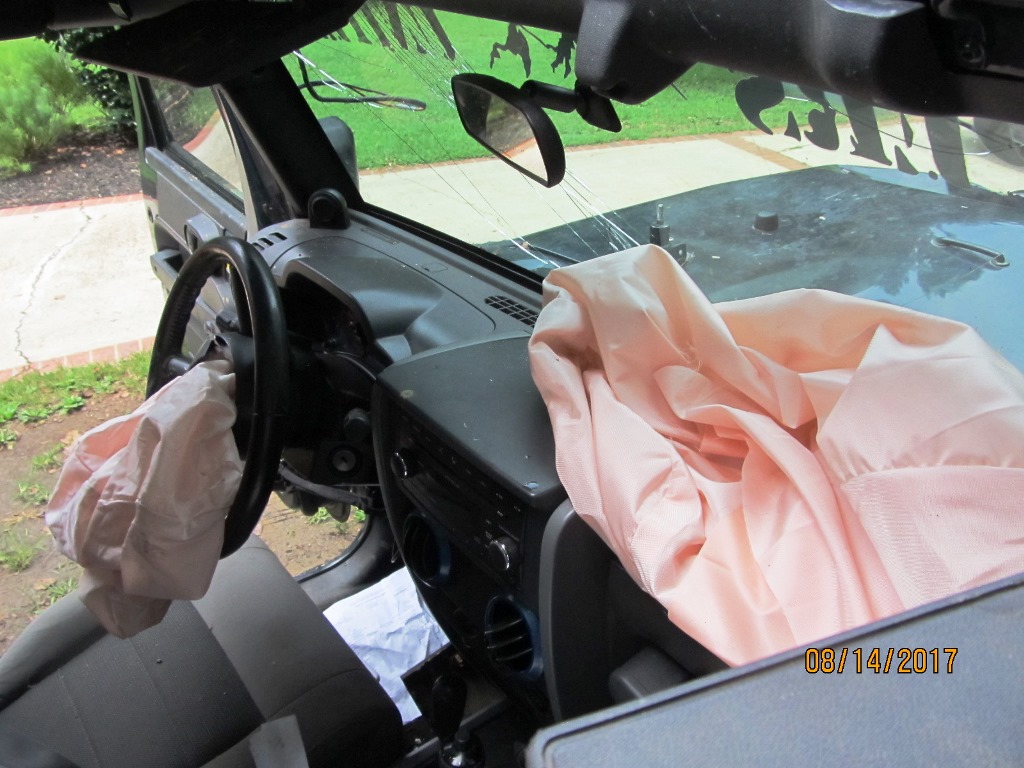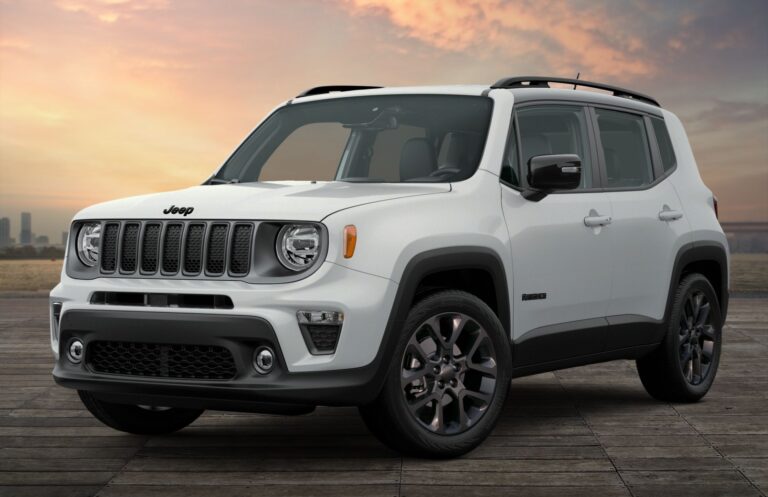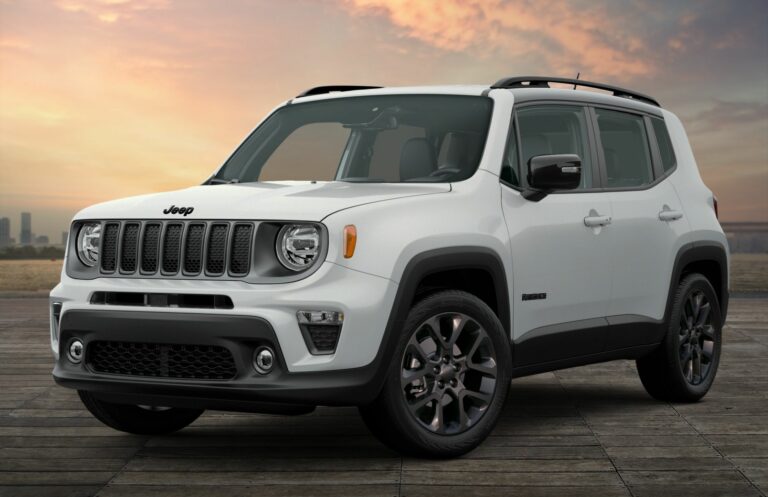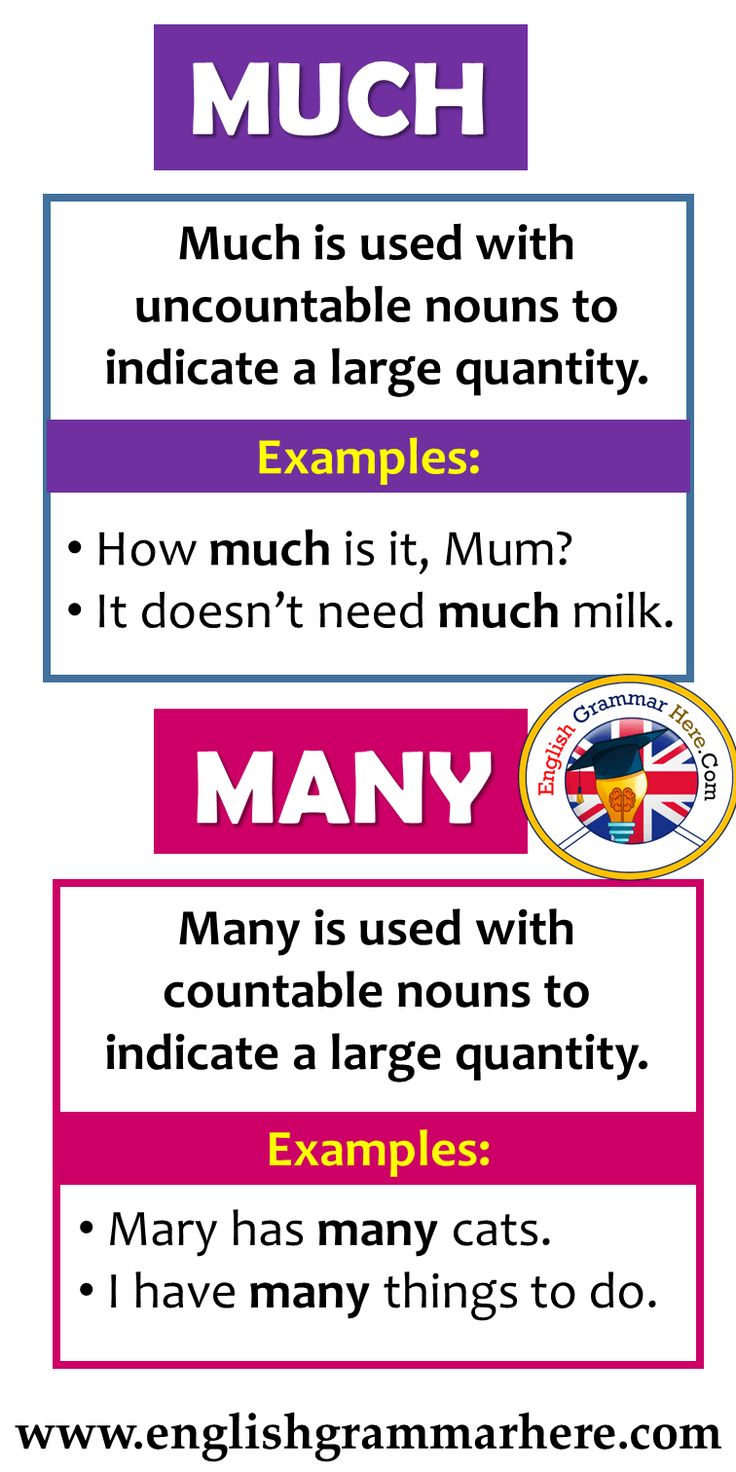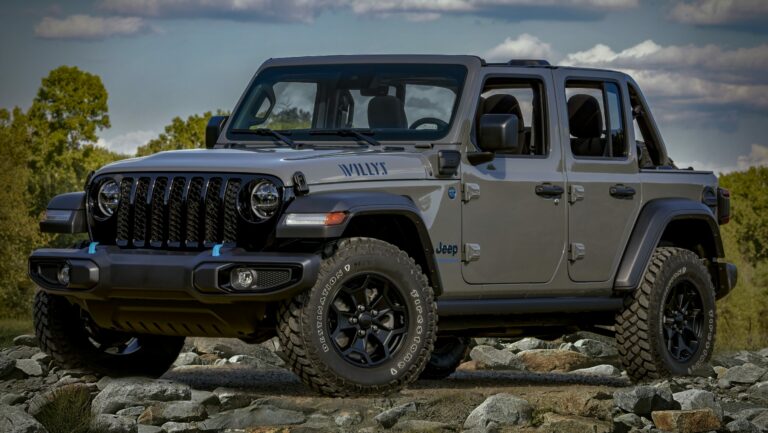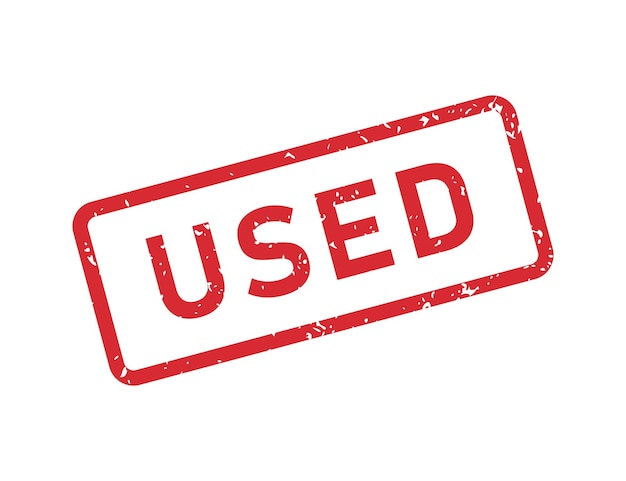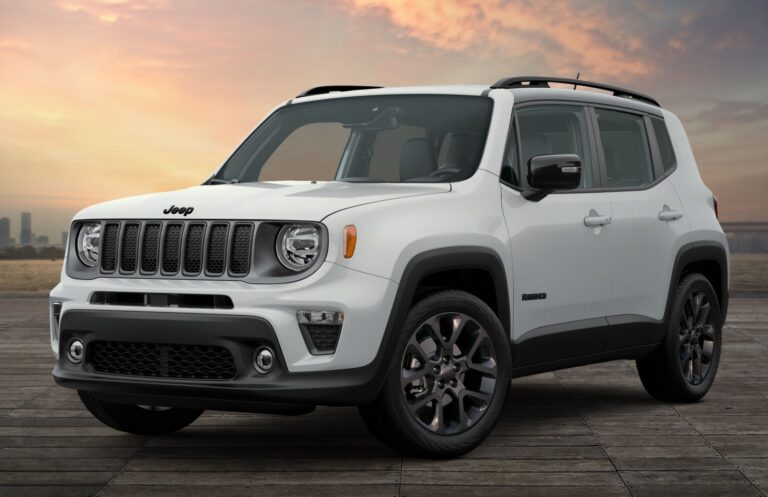Totaled Jeep JK For Sale: Unearthing Value in Wrecked Wonders
Totaled Jeep JK For Sale: Unearthing Value in Wrecked Wonders jeeps.truckstrend.com
The allure of a Jeep Wrangler JK is undeniable. Its iconic design, legendary off-road capability, and endless customization potential make it a dream vehicle for many. However, the price tag for a new or even a used, clear-title JK can be a significant barrier. This is where the concept of a "Totaled Jeep JK For Sale" enters the picture – a niche market that, for the savvy and mechanically inclined, can present a unique opportunity.
But what exactly does "totaled" mean, and why would anyone consider buying such a vehicle? In simple terms, a vehicle is declared "totaled" when the cost of repairing it after an incident (like an accident, flood, or fire) exceeds a certain percentage of its actual cash value (ACV) as determined by an insurance company. This doesn’t necessarily mean the Jeep is beyond repair, but rather that it’s deemed uneconomical to fix by the insurer. For the right buyer, a totaled Jeep JK can be a goldmine of parts, a challenging yet rewarding rebuild project, or even the foundation for a dedicated off-road beast. Understanding this market requires careful consideration, research, and a clear vision of what you intend to do with the vehicle.
Totaled Jeep JK For Sale: Unearthing Value in Wrecked Wonders
Understanding "Totaled": More Than Just Wrecked
The term "totaled" often conjures images of mangled metal and irreparable damage. While this can sometimes be the case, it’s crucial to understand the nuances behind an insurance company’s "total loss" declaration.
- Economic Total Loss: This is the most common reason a vehicle is totaled. If the repair costs, plus salvage value (what the insurer can get for the wrecked vehicle), exceed a certain percentage (often 70-80%) of the vehicle’s actual cash value (ACV) before the damage, it’s declared an economic total loss. For instance, a minor fender bender on an older JK could easily result in repair costs (including labor, parts, and paint) exceeding its depreciated value, leading to it being totaled even if it’s still drivable.
- Structural Total Loss: In some cases, the damage is so severe (e.g., major frame damage, extensive crumpling) that repairing it would compromise the vehicle’s structural integrity or safety, regardless of cost. These vehicles are usually beyond practical repair for road use.
- The Salvage When an insurance company declares a vehicle a total loss and pays out a claim, they typically take possession of the vehicle. They then sell it at a salvage auction, and the vehicle is issued a "salvage title." This title branding signifies that the vehicle has sustained significant damage and was deemed a total loss. A salvage title has major implications:
- Legality: A vehicle with a salvage title cannot be legally driven on public roads until it has been repaired, inspected, and issued a "rebuilt" or "branded" title by the state’s Department of Motor Vehicles (DMV).
- Registration: The process for obtaining a rebuilt title is stringent, often requiring detailed documentation of repairs, receipts for all parts, and multiple inspections to ensure it meets safety standards.
- Resale Value: Even after being rebuilt and re-titled, a vehicle with a branded title will always have a lower resale value than a clear-title equivalent.
- Insurance: Obtaining full coverage insurance on a rebuilt title vehicle can be more challenging and expensive, as insurers perceive them as higher risk.

For a Jeep JK, high repair costs are common due to the body-on-frame design, which means frame damage is a significant concern, and the cost of replacing body panels, axles, or drivetrain components can quickly add up, making it an easy candidate for a "totaled" declaration even for seemingly moderate incidents.
The Appeal of a Totaled JK: Why Buy One?
Despite the challenges, there are compelling reasons why someone might seek out a totaled Jeep JK:
- Unbeatable Cost Savings: This is the primary driver. A totaled JK can be purchased for a fraction of the cost of a comparable clear-title model. This massive initial saving can free up budget for repairs, upgrades, or simply provide an affordable entry point into Jeep ownership.
- Parts Donor Vehicle: If you already own a Jeep JK, a totaled one can be an invaluable source of spare parts. Engines, transmissions, axles, transfer cases, interior components, and even undamaged body panels can be salvaged, saving you thousands compared to buying new or used parts individually. This is especially true for specific trim levels or rare components.
- The Ultimate Project Vehicle: For the mechanically inclined, a totaled JK is a blank canvas. It’s an opportunity to learn, to wrench, and to rebuild a vehicle from the ground up. This can be incredibly rewarding, allowing you to customize every aspect to your exact specifications, from drivetrain upgrades to custom suspension and body work.
- Dedicated Off-Road Buggy Conversion: For those seeking a dedicated trail rig, the title status becomes less critical. Many enthusiasts buy totaled JKs to strip them down, remove unnecessary weight, add roll cages, and build extreme off-road vehicles where street legality is secondary to performance on the trails. In these cases, the frame might be cut, stretched, or completely replaced.
- Learning Experience: For aspiring mechanics or simply those looking to deepen their understanding of automotive systems, a totaled JK offers a hands-on, practical education. You’ll gain invaluable experience diagnosing issues, disassembling components, and reassembling them.
Navigating the Purchase: What to Look For and Ask
Buying a totaled Jeep JK is not like buying a used car from a dealership. It requires meticulous inspection and a keen eye.
-
Thorough Damage Assessment:
- Frame Integrity: This is paramount. Look for bends, kinks, buckling, or signs of stretching/compressing. Frame damage is often the most expensive and difficult to repair properly. If you plan to rebuild for road use, consider professional frame inspection.
- Engine & Drivetrain: Can it start? Does it run smoothly? Listen for knocking, grinding, or unusual noises. Check for fluid leaks. Inspect the transmission, transfer case, and axles for damage or leaks.
- Suspension & Steering: Look for bent control arms, damaged shock absorbers, broken springs, or compromised steering components. These are critical for safety and handling.
- Electrical System: Water damage can wreak havoc on a JK’s complex electrical system. Check for corrosion in fuse boxes, wiring harnesses, and control modules. Test lights, wipers, power windows, and the infotainment system.
- Body Damage: While often cosmetic, extensive body damage can be costly to repair. Assess the condition of the tub, fenders, hood, grille, and doors.
- Interior: Check for mold, water damage, deployed airbags (expensive to replace), and general wear and tear.
- Undercarriage: Inspect for rust, especially on the frame rails, control arm mounts, and suspension components.
-
Understand Salvage Title Specifics (Your State’s Laws):
- Rebuilt Title Process: Research your state’s exact requirements for converting a salvage title to a rebuilt title. This includes necessary inspections, documentation (receipts for all parts, proof of repairs), and fees. Some states are much more lenient than others.
- Insurance Implications: Contact insurance providers before buying to understand if they will insure a rebuilt title JK and at what cost. Full coverage might be difficult or impossible to obtain.
-
Seller Transparency & History:
- Detailed Information: Ask the seller for comprehensive photos and videos of all damage, inside and out.
- Accident Circumstances: Inquire about how the vehicle was totaled. Was it a front-end collision, rollover, flood, or fire? This information helps you anticipate potential hidden issues.
- Service History: While unlikely to be complete for a totaled vehicle, any available service records can provide insight into the vehicle’s past maintenance.
- Lien Check: Ensure there are no outstanding liens on the title.
-
Professional Pre-Purchase Inspection: For any significant rebuild project, especially one intended for road use, invest in a pre-purchase inspection by a mechanic specializing in frame, body, and suspension work. Their expertise can uncover hidden damage that you might miss.
The Rebuilding Process: From Wreck to Ride (or Parts)
Embarking on a totaled JK rebuild is a commitment. Here’s a general overview:
- Planning and Budgeting: Realistically assess your skills, available tools, time commitment, and most importantly, your budget. It’s easy to underestimate repair costs. Factor in the purchase price, parts (new OEM, aftermarket, or used), specialized tools, paint, and potential professional labor.
- Sourcing Parts: This is where the hunt begins.
- Used Parts: Salvage yards, online Jeep forums, Facebook Marketplace, and dedicated Jeep parts suppliers are excellent sources for used components like engines, transmissions, axles, and body panels.
- Aftermarket Parts: For upgrades or common replacement items, the aftermarket offers a vast array of options.
- OEM Parts: Sometimes, only genuine OEM parts will do, especially for critical safety components.
- Common Repairs:
- Body Panel Replacement: Fenders, doors, hoods, grilles, and even the tub itself are common replacements.
- Frame Straightening: If the frame is bent, it often requires specialized equipment and expertise.
- Suspension & Steering Components: Control arms, track bars, tie rods, drag links, shocks, and springs are frequently replaced.
- Drivetrain Repair/Replacement: Engines, transmissions, transfer cases, and axles may need rebuilding or replacing.
- Electrical Diagnostics & Repair: Often the most frustrating aspect, especially with water-damaged vehicles.
- Airbag System: If airbags deployed, the entire system (modules, sensors, airbags) must be replaced.
- Safety First: Any repairs, especially those related to the frame, suspension, steering, and airbags, must be done correctly to ensure the vehicle is safe for operation. Do not cut corners on safety.
- The Rebuilt Title Gauntlet: Once repairs are complete, you’ll need to navigate your state’s specific process for obtaining a rebuilt title. This typically involves:
- Submitting documentation (receipts for all parts, photos of the damage and repair process).
- Scheduling a pre-rebuild inspection (if required by your state).
- Scheduling a post-rebuild inspection by a state-certified inspector to verify all repairs meet safety standards.
- Paying associated fees.
Challenges and Considerations
While appealing, buying a totaled JK comes with significant challenges:
- Hidden Damage: The biggest risk. What appears to be minor cosmetic damage can hide extensive structural, electrical, or mechanical issues, inflating repair costs beyond initial estimates.
- Underestimated Time and Cost: Rebuilding a totaled vehicle is rarely a quick or cheap endeavor. Unexpected problems will arise, and sourcing parts can take time.
- Insurance Difficulties: Securing comprehensive insurance on a rebuilt title vehicle can be difficult or prohibitively expensive. Some insurers may only offer liability coverage.
- Depreciated Resale Value: Even a perfectly repaired and re-titled JK will command a significantly lower resale price than a clear-title equivalent, making it a poor investment if your primary goal is to flip it for profit.
- Legal & Regulatory Hurdles: Navigating state-specific DMV requirements for rebuilt titles can be complex and frustrating.
- Safety Concerns: If repairs are not done correctly, the vehicle’s safety can be compromised, putting you and others at risk.
Practical Advice and Actionable Insights
- Define Your Goal: Before you start looking, decide if you want a parts donor, a rebuild for road use, or an off-road only project. Your goal will dictate the type and extent of damage you can consider.
- Set a Realistic Budget: Add at least 30-50% contingency to your estimated repair costs. It’s almost always more expensive than you think.
- Do Your Homework: Research common JK issues, known weak points, and your state’s specific salvage title laws.
- Don’t Rush: Take your time to inspect the vehicle thoroughly, ask questions, and consult experts.
- Get it Inspected: If possible, have a qualified mechanic or frame shop inspect the vehicle before purchase, especially if you plan to rebuild it for road use.
- Know Your Limits: Be honest about your mechanical skills. If you’re not comfortable with complex repairs, factor in the cost of professional labor.
- Document Everything: Keep meticulous records of all repairs, parts purchased (with receipts), and the rebuild process (photos, videos). This documentation is crucial for obtaining a rebuilt title.
Totaled Jeep JK For Sale: Example Price Table
Please note: These are estimated prices and costs. Actual figures vary wildly based on the JK’s year, trim, mileage before the incident, specific damage, location, and the current market.
| Damage Level/Condition | Estimated Purchase Price Range | Estimated Repair Cost Range (DIY) | Estimated Repair Cost Range (Pro) | Potential Use | Notes

